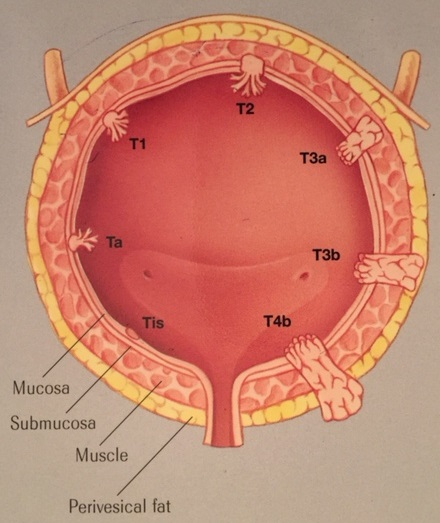SUMMARY: The American Cancer Society estimates that in the United States for 2015, about 74,000 new cases of bladder cancer will be diagnosed and approximately 16,000 patients will die of the disease. A third of the patients initially present with locally invasive or metastatic disease. Even though radical cystectomy was considered the standard of care for patients with localized Muscle Invasive Bladder Cancer (MIBC), two large randomized trials and two meta-analysis have shown greater survival benefit with neoadjuvant Cisplatin-based chemotherapy combinations for patients with MIBC, compared to surgery alone. However, not all patients with MIBC benefit from neoadjuvant Cisplatin based therapy, with only 25-50% attaining a pathologic response. The authors in this publication evaluated the role of genetic testing and genetic biomarkers prior to chemotherapy, in order to select the appropriate group of patients who would benefit from neoadjuvant Cisplatin based chemotherapy and thereby exclude those who are unlikely to benefit from chemotherapy.
Muscle Invasive Bladder Cancer (MIBC) patients from two prospective multicenter clinical trials of Cisplatin-based neoadjuvant chemotherapy were included and pretreatment MIBC samples were prospectively collected and this provided the discovery and validation sets. DNA from pre-treatment tumor tissue was sequenced for all coding exons of 287 cancer related genes and was analyzed for presence of base substitutions, indels, copy number alterations and selected rearrangements. The discovery set allowed for improved prognostic strength, by combining existing known high risk genetic markers with other novel risk markers. The validation set validated these markers. This study included data from 34 patients in the discovery cohort and 24 patients in the validation cohort.
It was noted that patients with a pathologic Complete Response had more alterations in the genes compared to those with residual tumor, both in the discovery (P= 0.024) and validation (P=0.018) sets. Further, in the discovery set, alteration in one or more of the three DNA repair genes ATM, RB1, and FANCC predicted pathologic Complete Response (P<0.001; 87% sensitivity, 100% specificity) as well as improved Overall Survival (P=0.007). DNA repair is one of the mechanisms postulated to contribute to Cisplatin chemo-resistance. This test remained predictive for pathologic Complete Response in the validation set (P=0.033), with a trend towards improved Overall Survival (P=0.055).
The authors concluded that defective DNA repair renders tumors sensitive to Cisplatin and genomic alterations in the DNA repair-associated genes ATM, RB1, and FANCC predict response and clinical benefit for MIBC, treated with Cisplatin-based chemotherapy. Defects in DNA Repair Genes Predict Response to Neoadjuvant Cisplatin-based Chemotherapy in Muscle-invasive Bladder Cancer. Plimacka ER, Dunbracka RL, Brennan TA, et al. European Urology 2015;68:959-967

